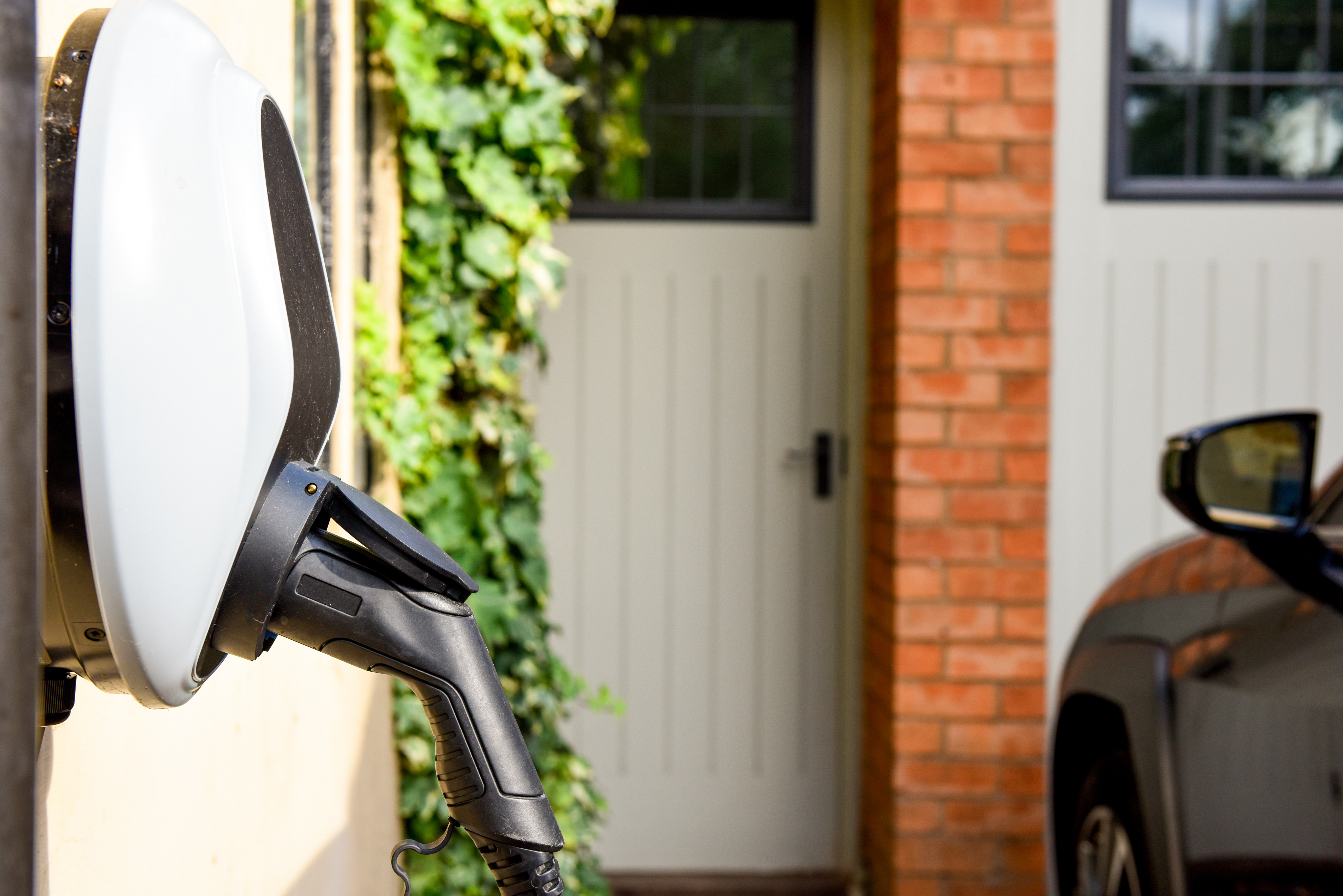EV charging
Considering an electric car?
Electric vehicles are becoming increasingly popular and are a crucial step towards reducing our carbon emissions. If you're thinking about buying an electric car and would like to install an EV charging point at home, there are a few things you need to consider.
It's important that you plan ahead and this page will guide you through the criteria and the process of requesting permission.

You'll need permission from us
If you want to have an electric vehicle (EV) charging point installed, you’ll need to ask for our permission before the installation takes place. This means we can make sure that your home is suitable, and can safely accommodate a charger, as not all homes can support the currently available infrastructure.
Permission will normally be granted if the conditions below are met:
- Your home has its own private driveway or you have an allocated parking space.
- Your home is over 12 months old.
If your home does not fit this criteria please continue to complete the permissions form as we will review all applications and circumstances.
This will be assessed during a site survey which will also determine whether you can have a charger fixed directly to your home, or a pedestal charger which is installed remotely within the allocated parking space.
If the charger is installed directly to your home any associated leads must not cross any paths or walkways that might be used by anyone other than the occupier. If the EV point is installed remote from the property, the cables must be buried or routed so that they don’t run over any paths or walkways.
If you think your home would be suitable for a charging point then you can apply for permission below.
Next steps
Once you've sent us your application, it can take up to 12 weeks for a decision to be made. During this time we may need to carry out legal searches and you might be contacted by our electrical contractor to book in a survey of your home. We'll usually ask you to send us photos of the proposed location of the charger.
Installing the charger
If we give you permission, the charger must be installed by an accredited professional who can provide an electrical safety certificate. The GOV.UK website can help you find accredited installers near you. Our permissions are only valid for 12 months once granted, so the installation must be completed within this period.

